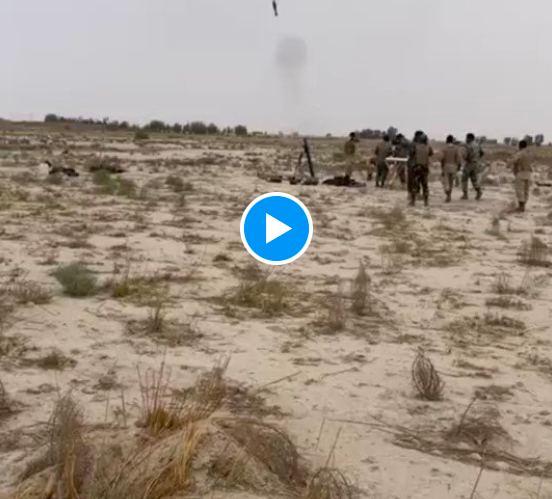Ann Arbor (Informed Comment) – Iran’s Tasnim News Agency reports that on Saturday deadly clashes broke out between Iranian border guards in the Zabul district of Sistan and Baluchistant Province and their opposite numbers on the Afghanistan side in the Keng District of Nimruz Province.
Tasnim wrote, “Conscript “Mehdi Ahmadi” was martyred while guarding the borders of Islamic Iran’s glory and honor in an armed conflict with forces under the command of the Taliban on the Iran-Afghanistan border.” The slain border guard “was unmarried and a resident of North Khorasan province.” Two other border guards were injured, it reported.
Tasnim added, “In this conflict, which was accompanied by heavy fire by the border guards, severe casualties were also caused to people under the command of the Taliban.”
The Nida-yi Baluch site posted to Twitter video purported to show Iranians firing mortars and rockets into the Makakai region of Nimruz Province, some of which landed near the provincial capital, Zaranj.
“The videos received from the other side of the border show that the Iranian border guards continue to fire in Afghanistan using heavy weapons. The residents of Zaranj claim that the weapons fired by Iran into Afghanistan cause casualties:”
ویدیو های رسیده از آن سوی مرز به ندای بلوچ نشان می دهد که مرزبانان ایرانی با استفاده از سلاحهای سنگین به شلیک در خاک افغانستان ادامه می دهند.
باشندهگان زرنج ادعا می کنند که سلاحهای که از سوی ایران به خاک افغانستان شلیک شده، تلفات در پی دارد. pic.twitter.com/dDFZyCKIBx
— ندای بلوچ_Nedaeybaloch (@nedaeybaloch) May 27, 2023
The issue over which tensions are running high is how to divide the waters of the Helmand River, which the two nations must share.
China’s Xinhua News Agency reported that Iranian member of parliament Hossein-Ali Shahriari, who represents Zahidan, the capital of Sistan and Baluchistan Province, charged the Taliban government in Afghanistan with stopping up the flow of the Helman River so that its waters were not reaching Iran. He said Iranian satellite photos demonstrated that the Afghans were storing extra water in the Kamal Khan Dam and other reservoirs. He complained that the Afghans have recently built new dams that are storing water that would otherwise have flowed to Iran.
A few years ago, Fatemeh Aman wrote a good summary of this conflict for the Atlantic Council, noting that drought and climate change have exacerbated the conflict.
Both countries have built dams on the Helmand and irrigated off it, often to raise water-hungry crops not suitable to this arid environment.
She notes, “The Helmand is the longest river in Afghanistan, constituting over 40 percent of Afghanistan’s surface water. With 95 percent of the Helmand located in Afghanistan, it is a critical source of livelihood for the country’s southern and southwestern provinces.”
The river flows into Iran’s arid southwest, where the inhabitants also need and value it.
The Helmand used to feed the Hamoun wetlands on the Iran side and lakes on the Afghan side, but damming, irrigation, and drought have partially dried these up, creating conditions for toxic dust clouds.
In short, the conflict here is a little like the one between Egypt and Ethiopia over damming the Nile.
Iran and Afghanistan are projected to heat up faster than the world average, twice as fast, in fact. Already, poor water management and extra heat have had a devastating effect on the Helmand basin. Extra heat dries out the soil and contributes to more intense and more frequent droughts. It also causes greater and more rapid evaporation of water from lakes and rivers. Many social scientists foresee water wars as a result. This border clash is a small omen of bigger conflicts to come.



 © 2026 All Rights Reserved
© 2026 All Rights Reserved